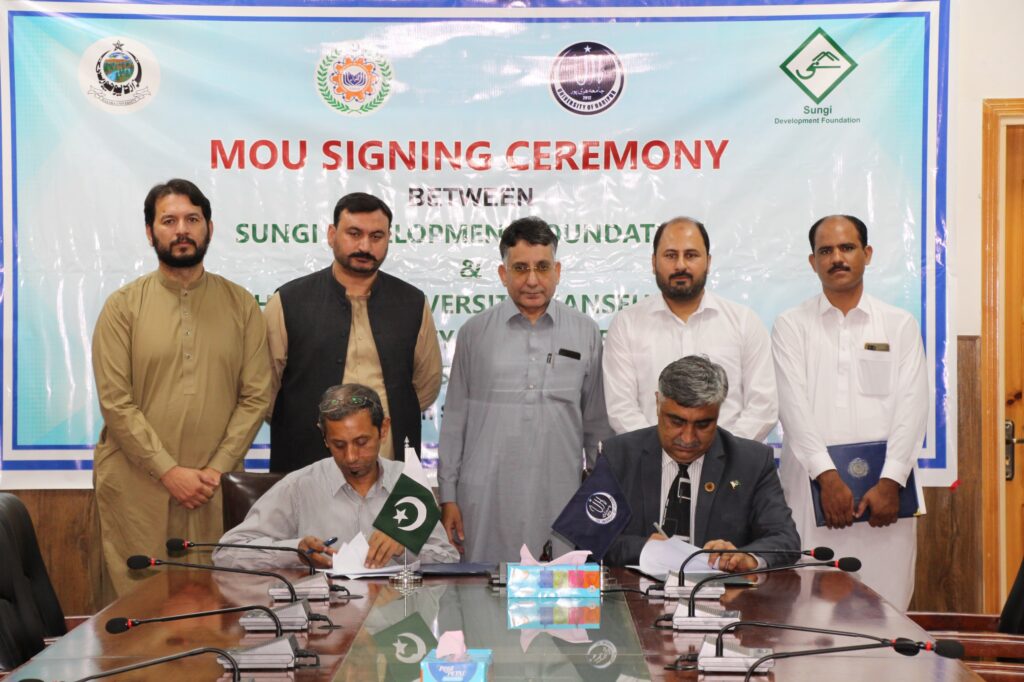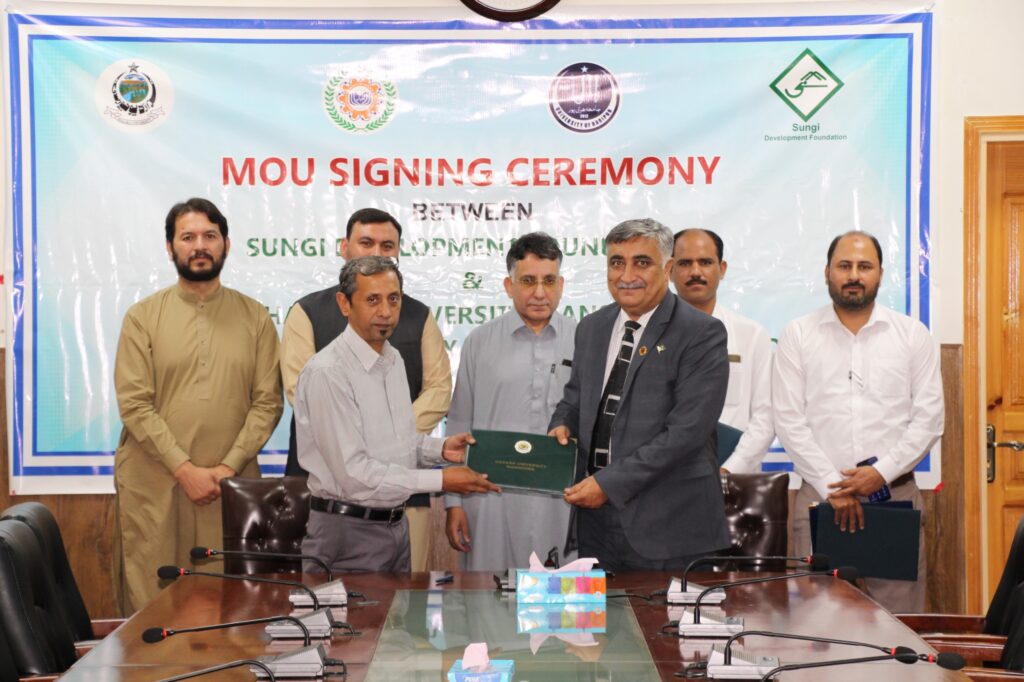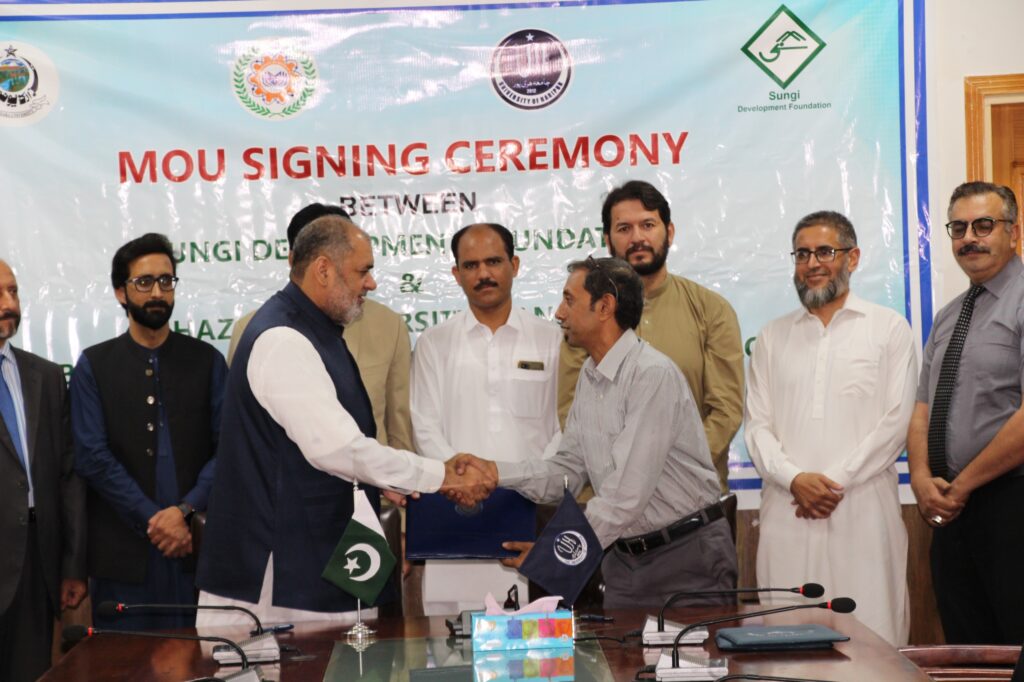
Sungi Development Foundation has made a big move by teaming up with three major public universities in the Hazara division—Hazara University, the University of Haripur, and Abbottabad University of Science and Technology (AUST). This partnership was formalized through a Memorandum of Understanding (MoU) during a special event at the University of Haripur, with the Vice Chancellors of the universities and Sungi’s Executive Director, Malick Shahbaz Ahmad Tahir, signing the agreement.

This collaboration is a step towards bridging education and community development, aiming to tackle important issues like climate change, governance, rural and urban development, and social work. What makes this partnership special is that it combines the strengths of academic institutions and Sungi’s experience in community-based work, ensuring that both research and practical solutions are part of the equation. It’s about creating real impact in local communities while driving sustainable growth.
A major highlight of the MoU is the creation of the Omar Asghar Khan Sungi Chair at each of the universities. Named after Sungi’s founder, who dedicated his life to social justice, this chair will focus on promoting education and research in critical areas like climate change, humanities, and gender sciences.

The idea is to equip students and faculty with the knowledge and tools to address these pressing issues and drive positive change, not just locally, but on a broader scale.The collaboration is not just about academic theory. It’s also about hands-on work. Together, Sungi and the universities will run various programs, workshops, and training sessions on topics like environmental conservation, renewable energy, and governance reforms. For example, students and faculty will get involved in tree planting campaigns, water conservation projects, and solid waste management initiatives. These efforts aren’t just academic exercises; they’ll have real-world impact on the communities in the Hazara region.
Another key aspect of this partnership is the focus on students. Sungi has committed to providing scholarships to two students (one male and one female) from each university every year, supporting their undergraduate education. These scholarships will be awarded based on a combination of academic merit and financial need, ensuring that deserving students—especially those from vulnerable backgrounds—get the opportunity to pursue their studies. As Malick Shahbaz pointed out during the event, the number of students benefiting from these scholarships will increase over time.In addition to scholarships, students will have access to internships that will allow them to work directly with Sungi on community projects. These internships will give students valuable real-world experience, helping them to build skills that will be useful in their future careers while contributing to meaningful social change in their communities.

The MoU represents a huge win for all parties involved. For the universities, it means access to new resources, opportunities for their students, and a stronger focus on important social and environmental issues. For Sungi, it’s a chance to work closely with the academic sector and strengthen its efforts in sustainable community development. Together, they’re building a model of cooperation that could be replicated in other regions of Pakistan, showing how education and social action can go hand in hand.The partnership also sends a powerful message about the importance of addressing gender equality, climate change, and other pressing issues in Pakistan. By focusing on these areas, the universities and Sungi are helping to equip the next generation of leaders with the skills and knowledge they’ll need to tackle the country’s biggest challenges.
Overall, this collaboration is a big step forward for both the universities and Sungi Development Foundation. It’s not just about signing an agreement; it’s about creating real opportunities for students, empowering communities, and working together to address critical issues like climate change and social justice. This partnership will hopefully be a model for similar collaborations in the future, setting the stage for lasting, positive change across Pakistan.

